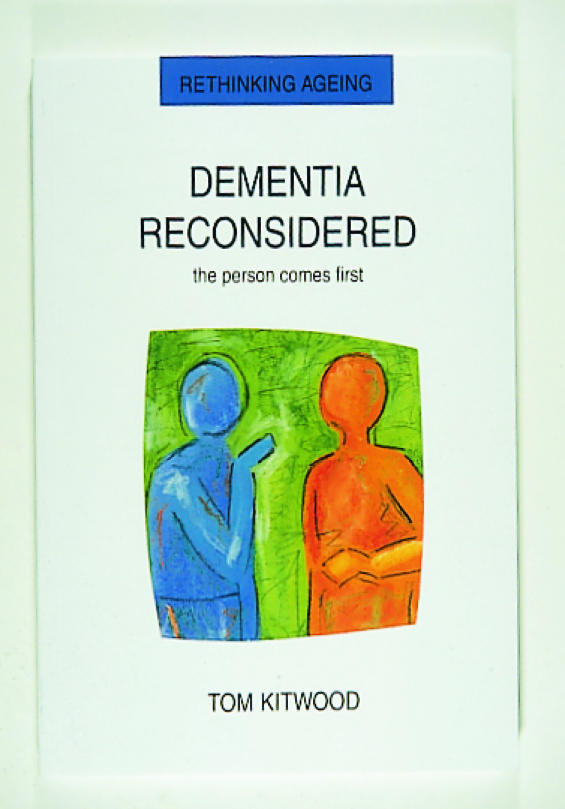Tom Kitwood
Open University Press, £14.95, pp 176 
ISBN 0 335 19855 4
———————
Rating: ★
The burden of dementia is borne not only by people with dementia, but by their carers, both informal and professional. The major direct financial costs are managed by the welfare sector, through the provision of community services and residential care, whereas indirect costs are largely attributed to informal carers. Advances in care practices would be of considerable benefit. The health sector has had its main impact in the area of dementia by providing skills and expertise necessary for comprehensive, holistic assessments. Kitwood challenges this medical model, which he labels as the “standard paradigm,” and asserts that not only does this paradigm produce bad care practices but that good care practices may slow down or even reverse the deterioration commonly seen in people with dementia by a “psycho-neuro-endocrine systemic relation.”
What are these bad care practices? Kitwood calls them “malignant social psychology” and claims they can be observed by a technique called “dementia care mapping.” He emphasises the need for continued prolonged intensive personal interactions with people with dementia to overcome these pathological care practices. He then proposes a need for a change in the culture of the services provided if long term improvements are to be made in care practices.
This is clearly a provocative book for the medical profession. The main concern about these hypotheses is the lack of evidence to support them and the author’s assertion that there is no requirement for rigorous testing. The background for these hypotheses takes some unusual perspectives from the history of dementia. There is little acknowledgment that some of the recent improvements in the care of people with dementia may be potentially due to the scorned biomedical model validating an organic basis, and that people with dementia had not chosen to go “senile.” The major basis for Kitwood’s hypothesis is some sketchy case histories and allusion to some small case series in which some individuals with dementia are said not to have deteriorated as quickly as others. Even within these anecdotal cases the process of “medical” assessment seems to have been of benefit to some of the carers.
Are there any potential negative consequences of this approach? Firstly, by the author’s own admission, the style of care proposed is extremely time consuming. This may increase the strain on informal carers and the financial costs to provide services. This approach may allow an opportunity to blame the carers for any deterioration, as suggested by the statement: “We have found that those who are well supported only very rarely suggest that their relative has acquired a different personality.” Finally, this may divert time and energy from other approaches that may be more likely to produce benefits—such as tailoring individual care plans to the specific cognitive deficits of patients in order to maximise function and quality of life. It is an unexplained oversight that, in a book addressing the psychology of people with dementia, no mention was made of recent work by several neuropsychologists in this subject.


